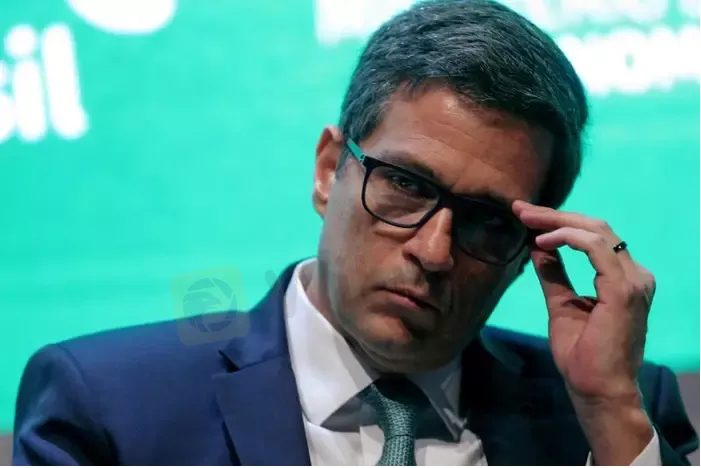简体中文
繁體中文
English
Pусский
日本語
ภาษาไทย
Tiếng Việt
Bahasa Indonesia
Español
हिन्दी
Filippiiniläinen
Français
Deutsch
Português
Türkçe
한국어
العربية
Brazil’s central bank chief predicts end of credit cards
Abstract: Brazil’s central bank chief Roberto Campos Neto on Friday said he believes credit cards will cease to exist soon due to the growth of the open finance system, through which clients authorize financial data sharing with different institutions.

Brazils central bank chief Roberto Campos Neto on Friday said he believes credit cards will cease to exist soon due to the growth of the open finance system, through which clients authorize financial data sharing with different institutions.
Open finance is a central bank project that has been implemented in phases since 2021.
Speaking at an event about cryptocurrencies, Campos Neto projected that, through the system, users will control all aspects of their financial life in one “integrator” on their mobile, rather than having many apps from different banks.
This will allow the development of cash management products for individuals and users to choose between making payments with the Pix instant payment system by debit or credit, he added.
“This system eliminates the need to have a credit card. I think that credit cards will cease to exist at some point soon,” said Campos Neto, noting that banks have already started using Pix to offer credit.
Launched by policymakers in 2020, Pix allows real-time transfers and payments and has been widely adopted by Brazilians, already surpassing the volume of credit and debit card transactions in the country.
According to Campos Neto, Pix could first expand “at least” to Latin America. He said Canada has also shown interest in the system.
Crypto
During the event, Campos Neto said he disagreed with heavy regulation of crypto assets, but stressed concerns on custody concentration, since four companies currently hold 80% of crypto assets.
He also said he was concerned about the risk of transaction concentration, with “one or two platforms holding 20-30% of the market.”
According to the central bank chief, regulators in Brazil want to ensure cryptocurrencies have transparency in how they are traded, created and transacted.

Disclaimer:
The views in this article only represent the author's personal views, and do not constitute investment advice on this platform. This platform does not guarantee the accuracy, completeness and timeliness of the information in the article, and will not be liable for any loss caused by the use of or reliance on the information in the article.
Read more

The Ultimate Guide to Automated Forex Trading in 2025
Modern markets are revolutionized by automated trading systems, which now execute 70-85% of all transactions. These advanced automated trading software solutions, commonly called trading robots or Expert Advisors (EAs), leverage algorithmic precision for automatic trading across forex, stocks, and commodities 24/7. By removing emotional interference and executing trades in microseconds, auto forex trading platforms create fair opportunities for all market participants. For those new to automated trading for beginners, these systems provide disciplined, backtested strategies while significantly reducing manual effort.

Will natural disasters have an impact on the forex market?
The forex market is known for its rapid responses to global events, but the influence of natural disasters, such as earthquakes and typhoons, can be less straightforward. While headlines may scream about catastrophic damage and economic disruption, the long-term effects on currency values often depend on a blend of immediate shock and underlying economic fundamentals.

Philippines Deports 29 Indonesians Linked to Online Scam Syndicate in Manila
Online scam groups in the Philippines trick Filipinos into gambling and love scams, from Manila to Bacolod, causing trafficking and pain as police fight back.

Why does your mood hinder you from getting the maximum return from an investment?
Investment decisions are rarely made in a vacuum. Aside from the objective data and market trends, our emotions—and our overall mood—play a crucial role in shaping our financial outcomes. Whether you’re feeling overconfident after a win or anxious after a loss, these emotional states can skew your decision-making process, ultimately affecting your investment returns.
WikiFX Broker
Latest News
How Crypto Trading Transforms FX and CFD Brokerage Industry
FCA Warns Against 10 Unlicensed or Clone Firms
CySEC Warns Against 14 Unlicensed Investment Websites
Top Currency Pairs to Watch for Profit This Week - March 31, 2025
Will natural disasters have an impact on the forex market?
Philippines Deports 29 Indonesians Linked to Online Scam Syndicate in Manila
Exposed: Deceptive World of Fake Trading Gurus – Don’t Get Fooled!
AI-Powered Strategies to Improve Profits in Forex Trading
Stock Market Trading Volume Drops by 97.58 Billion Naira This Month
Why does your mood hinder you from getting the maximum return from an investment?
Currency Calculator







